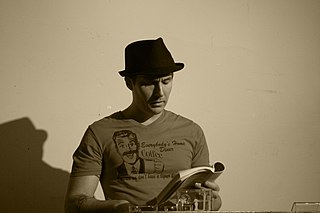A Quote by Russell Freedman
If you're doing a good job as author, then you get the reader to engage in whatever speculation might be called for. And it's much more meaningful for the reader, if he or she comes up with the questions.
Related Quotes
You've got to be a good reader. So whatever genre that you're interested in, read a lot of books about it and it's better than any kind of writing class you'll ever take. You will absorb techniques and then in a lot of cases you can just start writing using the style of the book or the author that you admire and then your own style will emerge out of that. Be a diligent reader and then try to write seriously, professionally and approach everything in writing in a professional way.
We must be forewarned that only rarely does a text easily lend itself to the reader's curiosity... the reading of a text is a transaction between the reader and the text, which mediates the encounter between the reader and writer. It is a composition between the reader and the writer in which the reader "rewrites" the text making a determined effort not to betray the author's spirit.
Reading, I had learned, was as creative a process as writing, sometimes more so. When we read of the dying rays of the setting sun or the boom and swish of the incoming tide, we should reserve as much praise for ourselves as for the author. After all, the reader is doing all the work - the writer might have died long ago.
It's good for a writer to come from journalism because it gives you the tools. A journalist knows that he or she can lose the reader in six lines, so try to keep the attention of the reader. Also, you learn to research, and to conduct an interview - to extract from the person whatever you need from that person.



































